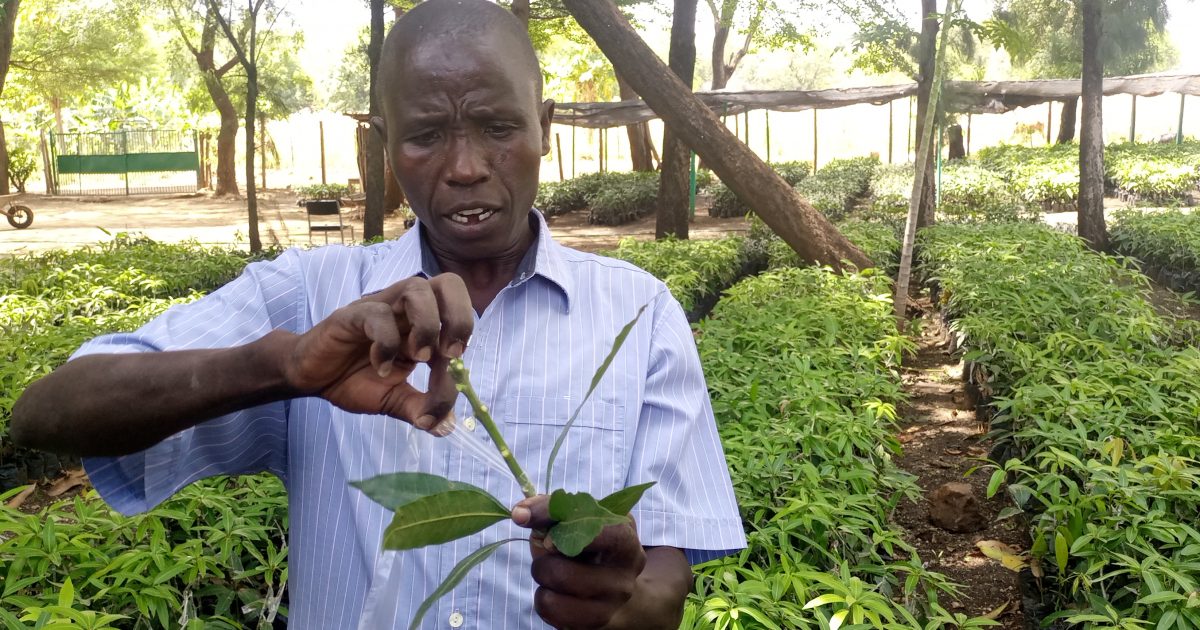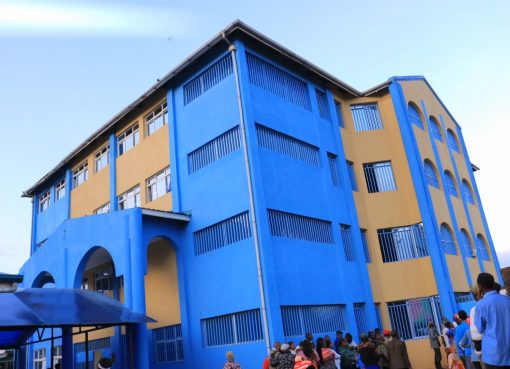Kerio Valley Development Authority (KVDA) is one of the six Regional Development Authorities (RDAs) in Kenya, established by an Act of parliament with a mission to impart, initiate, plan and develop resources along the Kerio River basin.
The KVDA covers the counties of West Pokot, Turkana, Baringo, Elgeyo Marakwet, and parts of Samburu and Nakuru counties with an estimated population of about 3 million people.
Wei Wei Integrated Development Project which is an irrigation scheme at Sigor area within Pokot Central Sub County in West Pokot County has invested in the propagation of improved mango tree seedlings through its certified mango nurseries where they specialize in raising Apple, Ngowe, Keitt, and Kent mango varieties.
The authority has the capacity to raise 40,000 grafted mango tree seedlings annually which has helped to replace the traditional mango trees in the region and other counties across the country.
“Our nursery which is basically fruit seedlings has a capacity of accommodating 250,000 including 40,000 mango seedlings. It is a unique nursery that has thrived for the last three years,” said West Pokot KVDA Regional Manager Peter Thuranira.
Thuranira said that they have managed to raise slightly over 300,000 seedlings out of which 200,000 are grafted, that were supplied to other counties such as Elgeyo Marakwet, Laikipia, Bungoma, Baringo, and Turkana among others.
He added that the authority has a mango factory in Elgeyo Marakwet for value addition which they established after realizing that most of the farmers were fetching low returns after being fleeced by middlemen and brokers.
“So, as KVDA we said, why can’t we come in and help our community? That is why we came up with the factory in Elgeyo Marakwet for value chain addition,” said the regional manager.
The KVDA regional boss said they process the mango juice which is now sold in supermarkets across the country.
“We are processing mango juice which are now sold in supermarkets and we are able now to get the supplies of the mangoes from the local farmers and in return they get value for their sweat,” he posed.
Through the advocacy activities by the KVDA officers, he intimated, the crop and livestock farmers from the region who have planted the grafted mango trees seedling have had their livelihoods changed through enhanced food security, skills, land production, and knowledge.
Mr. Thuranira said that KVDA is committed to working with ASAL farmers from the region, taking into account their socio-economic, cultural issues including the commitment to equal job opportunities for all including gender and vulnerable persons in the region.
“We are able to engage and employ locals to do the grafting. We are able now to transfer the technology because we have trained local youth who are now well versed in grafting technology,” explained Thuranira.
The Authority has helped promote the sustainable utilization and enhancement of resources available to the community by donating to the residents the mango tree seedlings as part of a capacity building programme that will also ensure the continuity of the mango juice factory project.
Thuranira urges farmers to try their fortune in planting grafted mango tree seedlings since it is a profitable farming venture that would earn them income and a source of nutrients for their families since they take a short time to mature.
“If a farmer has one acre and he plants at least 50 trees, a single harvesting is likely to get 200,000 to Sh300,000 fruits which is a huge income to the common farmer compared to planting local mango trees,” he stated.
Thuranira intimated that the current long droughts have forced many of their customers in the region and across not to purchase the seedlings for planting.
“The biggest challenge is the issue of rains like now most of the farmers and our customers who buy and depend on the rain patterns so when the rains are unpredictable also our market dwindles,” he noted.
The propagated mango tree seedlings are sold to the locals at Sh120 per tree instead of Sh200 as part of capacity building to mango farmers for them to increase the quality and quantity of mangoes.
“When the farmers get the seedlings and their farms are not near water sources, there is no way they can sustain the crop,” he explained.
Mangoes are some of the tastiest fruits known for excellent sources of vitamin A, C, B6 and have an excellent flavour, beautiful shades of colour and attractive fragrance.
Josephat Liwan orchard worker in Wei Wei Integrated Development, irrigation scheme said it would take a farmer three years of waiting to harvest planted grafted tree seedling of mango.
Mr Liwan explained that grafted Mango trees grow well in sandy, loam, or clay soil that is well-drained and will not grow well in soil that retains water.
“A farmer needs to plant the grafted mango tree seedling in soil which drains water and possess necessary nutrients and moisture content for them to grow well,” explained Mr Liwan.
He said from his experience since the year 1997 as a mango tree seedlings orchard worker, he has learned that the tree requires constant supervision and at least some bags of manure from the first day of its planting until the third year when it reaches its maturity.
By Anthony Melly





